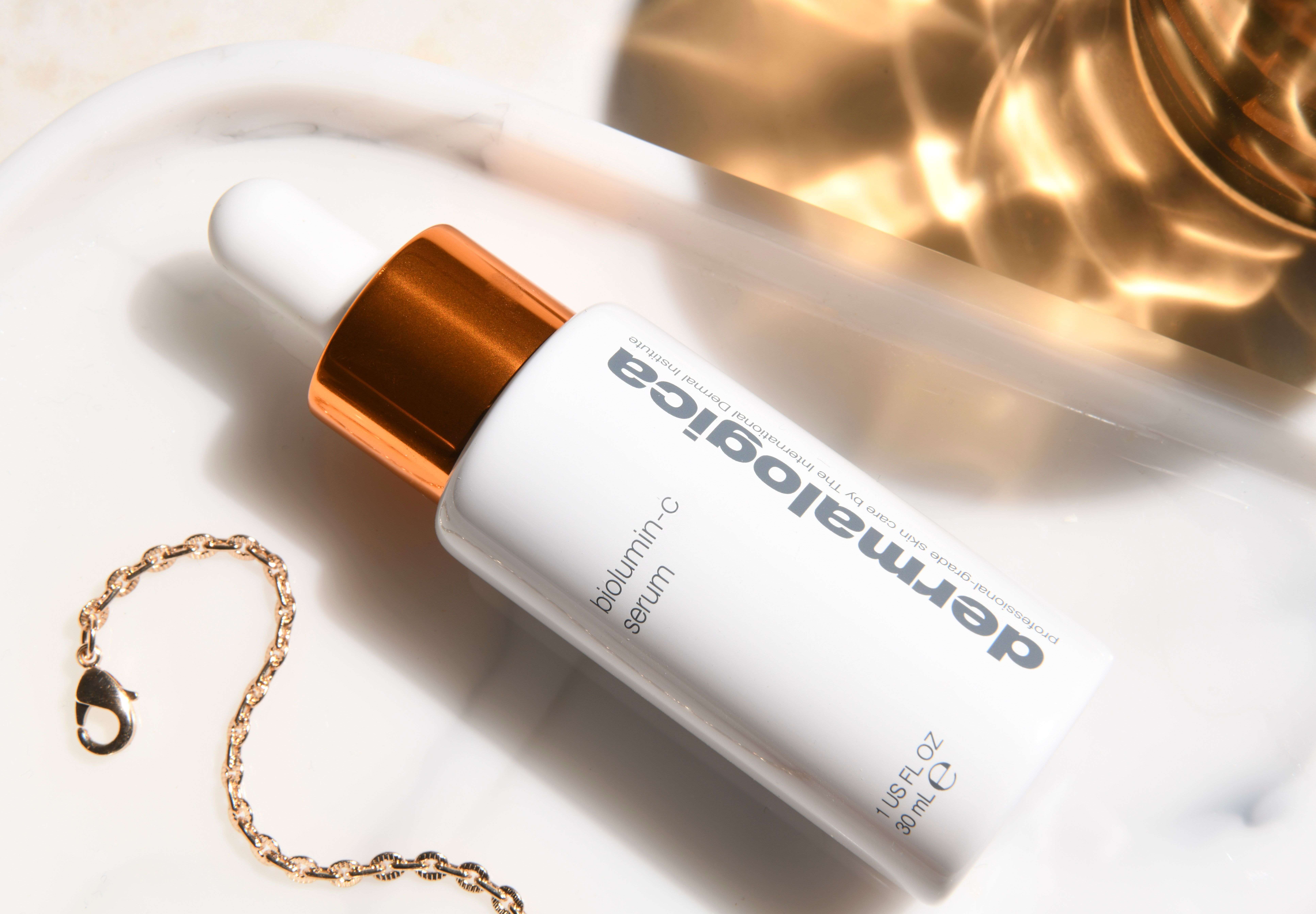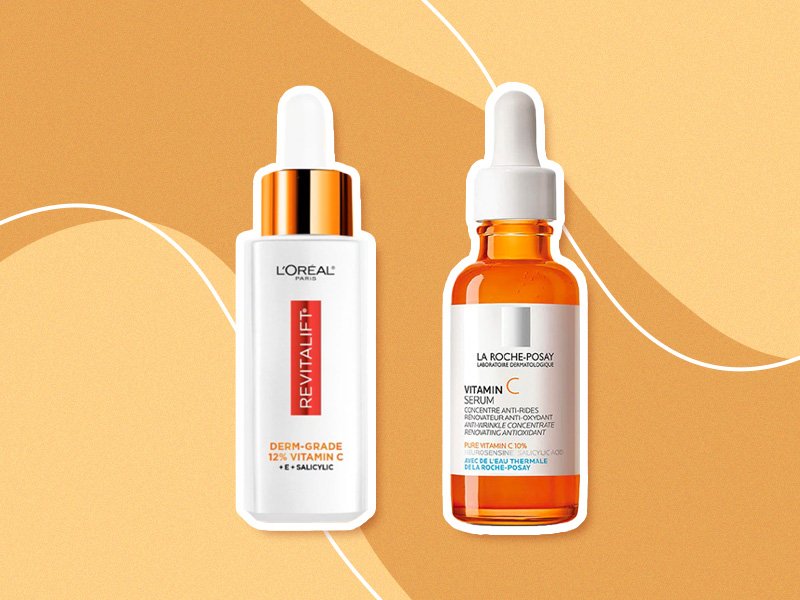Acne-prone skin can be challenging to manage, but finding the best vitamin C for acne-prone skin can make all the difference in your skincare routine. Vitamin C is a powerful antioxidant that not only brightens the skin but also helps reduce inflammation and protect against environmental damage. If you're struggling with acne-prone skin, incorporating the right form of vitamin C into your regimen can significantly improve your complexion.
Many people with acne-prone skin are hesitant to use vitamin C because they fear it might irritate their skin. However, the truth is that vitamin C, when formulated correctly, can be a game-changer. It helps to even out skin tone, reduce redness, and promote overall skin health. This guide will help you understand how vitamin C works and how to choose the best product for your specific needs.
Whether you're dealing with mild breakouts or chronic acne, finding the right skincare products can be overwhelming. In this article, we'll explore the benefits of vitamin C for acne-prone skin, discuss the best formulations, and provide expert recommendations to help you achieve a clearer, healthier complexion. Let's dive in!
Read also:Where Can I Buy Chocolate Advent Calendars Your Ultimate Guide
Table of Contents
- What is Vitamin C?
- Benefits of Vitamin C for Acne-Prone Skin
- Types of Vitamin C for Skincare
- How to Choose the Best Vitamin C Serum
- Top Recommendations for Vitamin C Serums
- How to Use Vitamin C in Your Skincare Routine
- Potential Side Effects of Vitamin C
- Expert Tips for Using Vitamin C
- Frequently Asked Questions
- Conclusion
What is Vitamin C?
Vitamin C, also known as L-ascorbic acid, is a water-soluble vitamin that plays a crucial role in maintaining skin health. It is a potent antioxidant that neutralizes free radicals, which are harmful molecules that can damage skin cells. Vitamin C is essential for collagen production, which helps keep the skin firm and youthful. Additionally, it has anti-inflammatory properties that make it beneficial for acne-prone skin.
Why is Vitamin C Important for Skin?
Vitamin C is not only important for overall health but also vital for maintaining healthy skin. It helps to:
- Protect the skin from UV damage.
- Improve skin texture and tone.
- Reduce hyperpigmentation and dark spots.
- Boost collagen production for firmer skin.
Benefits of Vitamin C for Acne-Prone Skin
For those with acne-prone skin, vitamin C offers several key benefits that can improve the overall appearance and health of the skin:
- Reduces Inflammation: Vitamin C has anti-inflammatory properties that help calm irritated skin and reduce redness caused by acne.
- Fades Hyperpigmentation: Acne scars and dark spots can be minimized with regular use of vitamin C, as it inhibits the production of melanin.
- Protects Against Pollution: As an antioxidant, vitamin C shields the skin from environmental stressors that can exacerbate acne.
How Does Vitamin C Work on Acne-Prone Skin?
Vitamin C works by penetrating the skin's surface and targeting the root causes of acne. It helps to regulate sebum production, reduce oxidative stress, and promote cell turnover, all of which contribute to clearer skin over time.
Types of Vitamin C for Skincare
Not all vitamin C formulations are created equal. Here are some of the most common types of vitamin C used in skincare:
- L-Ascorbic Acid: The most potent and effective form of vitamin C, but can be irritating for sensitive skin.
- Sodium Ascorbyl Phosphate (SAP): A gentler, water-soluble form of vitamin C that is ideal for acne-prone skin.
- Magnesium Ascorbyl Phosphate (MAP): A stable form of vitamin C that provides antioxidant benefits without causing irritation.
Which Type is Best for Acne-Prone Skin?
For acne-prone skin, it's best to choose a stable and gentle form of vitamin C like Sodium Ascorbyl Phosphate (SAP) or Magnesium Ascorbyl Phosphate (MAP). These formulations are less likely to cause irritation while still delivering effective results.
Read also:The Ultimate Guide To Light Skin Everything You Need To Know
How to Choose the Best Vitamin C Serum
When selecting a vitamin C serum for acne-prone skin, consider the following factors:
- Concentration: Look for a serum with a concentration of 10-20% vitamin C for optimal results.
- Stability: Choose a serum packaged in an airtight, dark bottle to protect the vitamin C from light and air exposure.
- Ingredients: Avoid serums with harsh ingredients like alcohol or fragrances that can irritate sensitive skin.
Key Ingredients to Look For
In addition to vitamin C, consider serums that include complementary ingredients such as:
- Hyaluronic Acid: Helps to hydrate and plump the skin.
- Niacinamide: Reduces inflammation and regulates sebum production.
- Ferulic Acid: Enhances the stability and effectiveness of vitamin C.
Top Recommendations for Vitamin C Serums
Here are some of the best vitamin C serums for acne-prone skin:
- Sunday Riley C.E.O. 15% Vitamin C Brightening Serum: A potent serum with 15% L-Ascorbic Acid and ferulic acid for maximum effectiveness.
- The Ordinary Vitamin C Suspension 23% + HA Spheres 2%: An affordable option with a high concentration of vitamin C and hyaluronic acid for hydration.
- Paula's Choice C15 Super Booster: A gentle yet effective serum with 15% vitamin C and niacinamide for reducing redness and improving skin texture.
Why These Serums Stand Out
These serums are specifically formulated to address the needs of acne-prone skin while providing powerful antioxidant protection. They are gentle enough for daily use and offer a range of benefits beyond just brightening the skin.
How to Use Vitamin C in Your Skincare Routine
To get the most out of your vitamin C serum, follow these steps:
- Cleanse your face with a gentle cleanser.
- Apply the serum to damp skin for better absorption.
- Follow with a moisturizer and sunscreen during the day.
When to Apply Vitamin C
Vitamin C can be applied both morning and night, but it's especially important to use it in the morning to protect your skin from UV damage and environmental stressors.
Potential Side Effects of Vitamin C
While vitamin C is generally safe for most people, some may experience side effects such as:
- Irritation or stinging sensation.
- Redness or dryness.
- Breakouts (initially, as the skin adjusts).
If you experience any adverse reactions, discontinue use and consult a dermatologist.
How to Minimize Side Effects
To minimize the risk of side effects, start with a lower concentration of vitamin C and gradually increase it over time. Always patch test new products and avoid layering with other active ingredients like retinol or AHAs.
Expert Tips for Using Vitamin C
Here are some expert tips to help you get the best results from your vitamin C serum:
- Use sunscreen daily to protect against UV damage.
- Store your serum in a cool, dark place to maintain its potency.
- Pair vitamin C with other antioxidants for enhanced benefits.
Why Sunscreen is Essential
Vitamin C works best when combined with sunscreen, as it enhances the skin's natural defense against UV rays. Always choose a broad-spectrum sunscreen with at least SPF 30 for optimal protection.
Frequently Asked Questions
Can Vitamin C Cause Breakouts?
Initially, some people may experience breakouts as their skin adjusts to the new product. This is usually temporary and should subside after a few weeks of consistent use.
Is Vitamin C Safe for Sensitive Skin?
Yes, as long as you choose a gentle formulation like Sodium Ascorbyl Phosphate or Magnesium Ascorbyl Phosphate, vitamin C can be safe for sensitive skin.
How Long Does It Take to See Results?
Most people start to see improvements in their skin's texture and tone after 4-6 weeks of regular use. Consistency is key to achieving long-term results.
Conclusion
Choosing the best vitamin C for acne-prone skin can transform your skincare routine and lead to clearer, healthier-looking skin. By understanding the benefits of vitamin C, selecting the right formulation, and incorporating it into your daily regimen, you can achieve significant improvements in your complexion.
We encourage you to share your experiences with vitamin C serums in the comments below. If you found this article helpful, don't forget to share it with your friends and family. For more skincare tips and product recommendations, explore our other articles on the site.
Remember, taking care of your skin is an investment in your overall well-being. With the right products and routine, you can achieve the glowing, acne-free skin you've always wanted.


